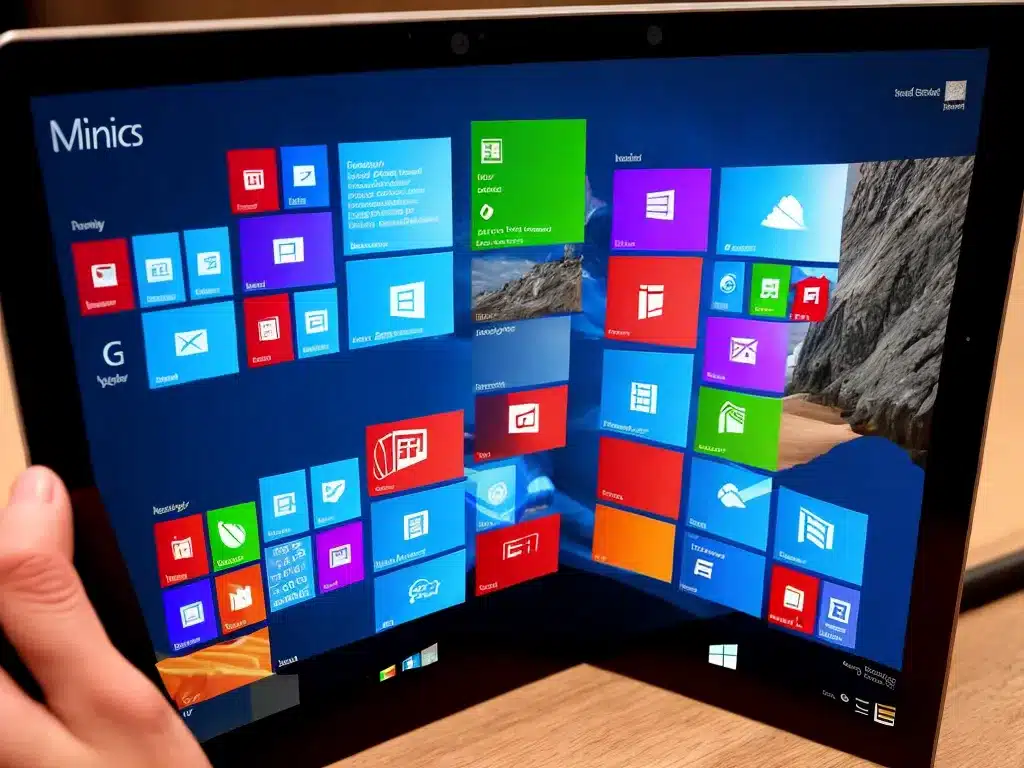
Upgrading your Windows 10 PC to Windows 11 is a big change that raises questions for many users. One common concern is application compatibility – will your existing apps still work properly after the upgrade? This article provides a comprehensive look at how upgrading to Windows 11 affects application compatibility.
How Windows 11 Affects Application Compatibility
Windows 11 features significant under-the-hood changes from Windows 10, mainly:
- A redesigned core architecture
- New security features like hardware-enforced stack protection
- Updated graphics and media modules
These low-level changes mean some apps designed for previous Windows versions may not work properly or at all on Windows 11. Apps that interact closely with the operating system core, like antivirus tools and virtualization software, are most likely to have issues.
Key Application Compatibility Concerns
The main factors determining Windows 11 app compatibility are:
- Hardware requirements – Windows 11 has higher minimum hardware requirements, like a TPM 2.0 security chip. Apps depending on older hardware may not work.
- Driver compatibility – Apps relying on specific hardware drivers may malfunction if those drivers don’t work on Windows 11.
- 32-bit (x86) apps – These legacy apps are not officially supported on Windows 11 and may not work properly.
- Deprecated technologies – Windows 11 removes some older Windows technologies. Apps using these technologies will break.
How Application Developers Are Handling Compatibility
Developers are working to make their apps Windows 11 ready:
- Updating existing apps – Developers are releasing patches and new versions optimized for Windows 11.
- Releasing new Windows 11 apps – Developers like Adobe and Zoom are releasing all-new apps built specifically for Windows 11.
- Publishing compatibility information – Many developers have detailed Windows 11 compatibility info in their documentation and knowledge bases.
So over time, more and more apps are gaining official Windows 11 compatibility. But at launch, compatibility is still a concern for some apps and use cases.
Checking if Your Apps Are Compatible
Since compatibility varies widely between applications, how can you check if your specific apps will work on Windows 11? There are a few ways to verify compatibility:
Check Developer Resources
The most definitive compatibility info comes directly from the app developer. Check the developer’s website, documentation, or knowledge base for details on Windows 11 support. For example, Adobe has extensive information on which Creative Cloud apps support Windows 11 and which have known issues.
Consult the Windows 11 Compatibility List
Microsoft maintains a public list of applications tested and verified to be Windows 11 compatible, including software like Chrome, Zoom, and Evernote. This list grows over time as more apps are validated.
Use Upgrade Assistant Tools
Microsoft’s PC Health Check app checks for Windows 11 readiness, including application compatibility issues. Other tools like WhyNotWin11 provide detailed Windows 11 compatibility diagnostics.
Test On a Separate Windows 11 Machine
If you have access to a test machine running Windows 11, try installing and running your critical apps on it to check real-world behavior. Virtual machines can help test compatibility without dual-booting your daily driver PC.
Fixing and Working Around App Compatibility Issues
If some of your apps aren’t yet compatible, all hope isn’t lost. Here are some tips to mitigate compatibility problems:
- Delay upgrading – Waiting lets more apps release compatibility fixes and avoids disrupting your workflow.
- Use app compatibility modes – Windows 11 includes modes like Windows 10 Compatibility Mode to improve legacy app support.
- Install the latest app updates – Updating to the newest app version often resolves compatibility issues.
- Run apps as administrator – Administrative access sometimes clears app compatibility errors.
- Use a virtual machine – Apps incompatible with your host OS may still work in a virtual machine.
Hopefully the developer will release an official compatibility fix soon. For crucial apps, you may need to delay upgrading or use a workaround.
The Bottom Line
While many popular apps work flawlessly on Windows 11, compatibility issues still affect some applications, especially at launch. Checking developer guidance and testing apps on Windows 11 preemptively is key to avoiding surprises. And app compatibility will likely improve steadily as more apps add official Windows 11 support.
With some research and planning, you can confidently upgrade, safe in the knowledge your essential apps will function smoothly. So you can enjoy all the benefits of the latest Windows version without productivity disruptions.












